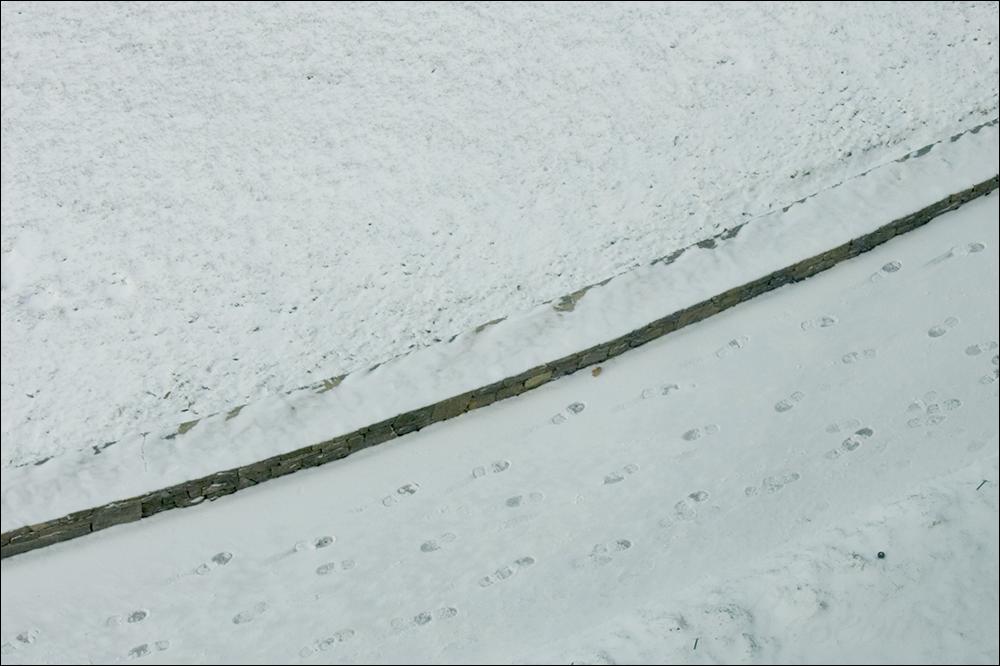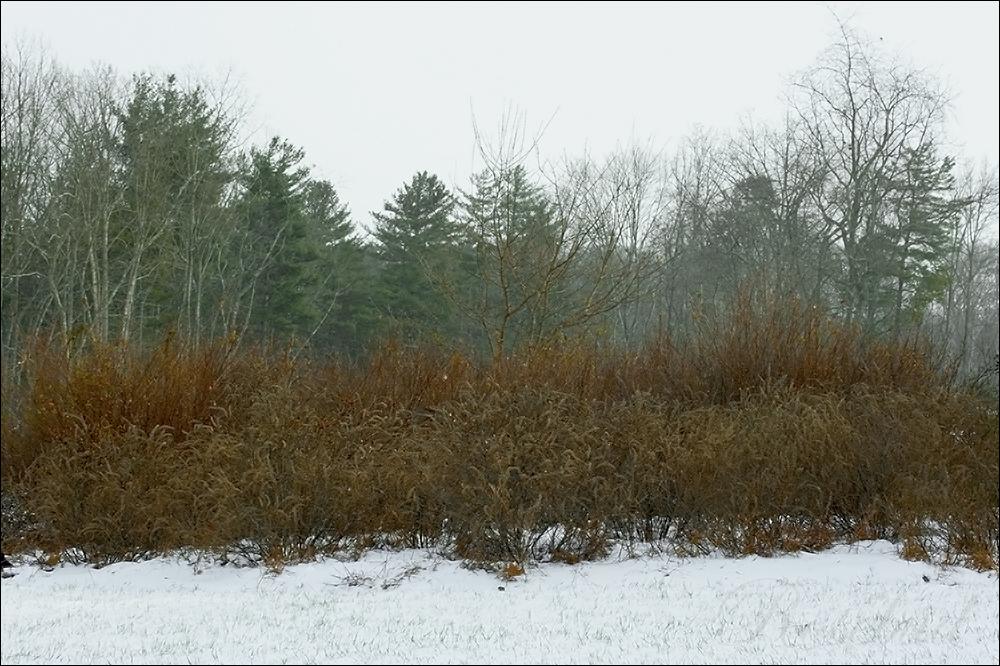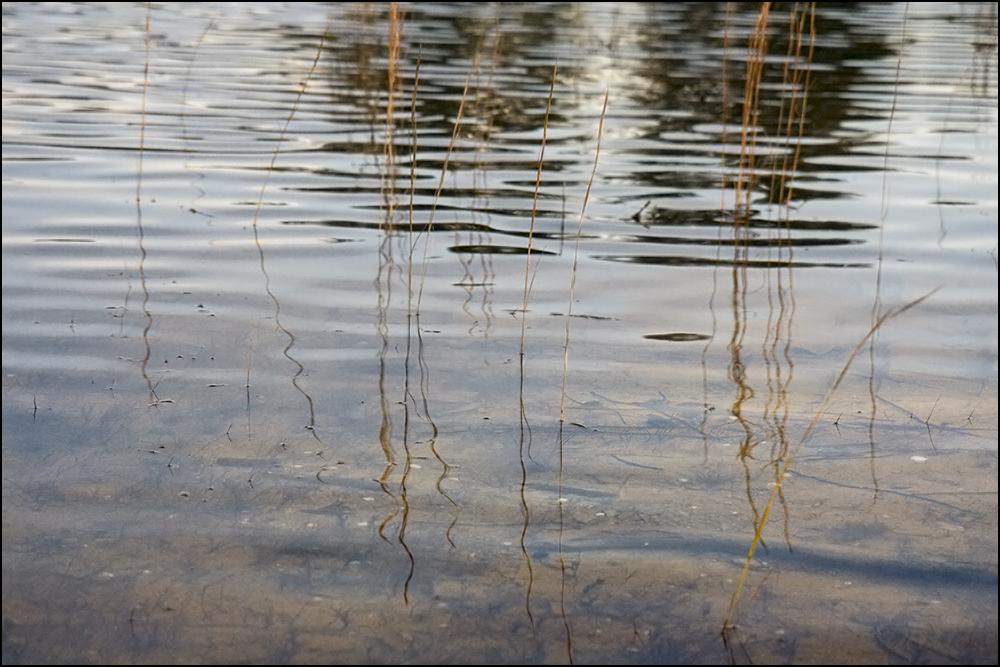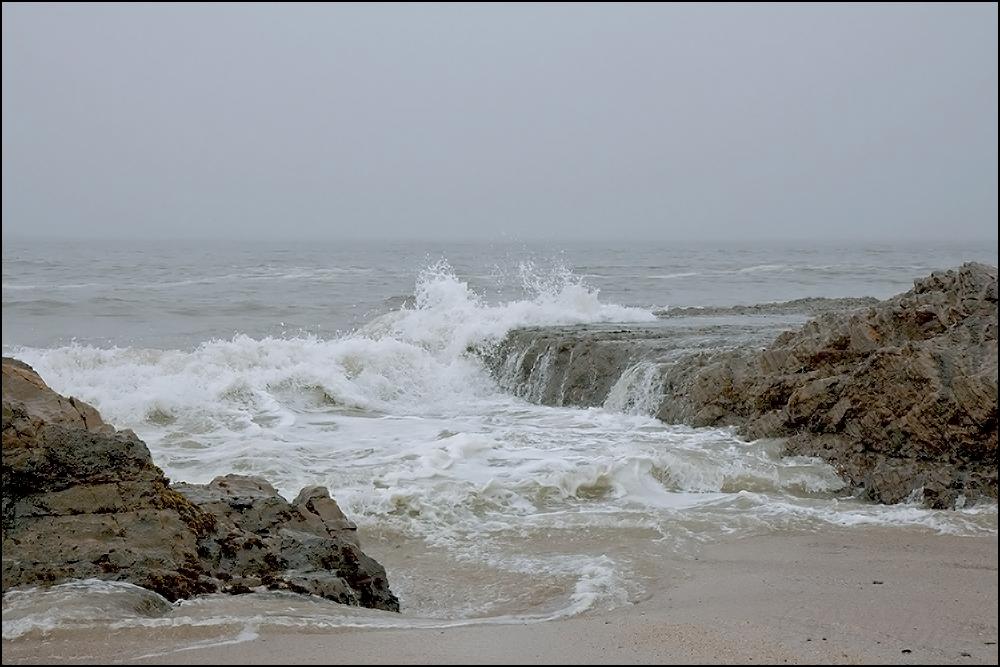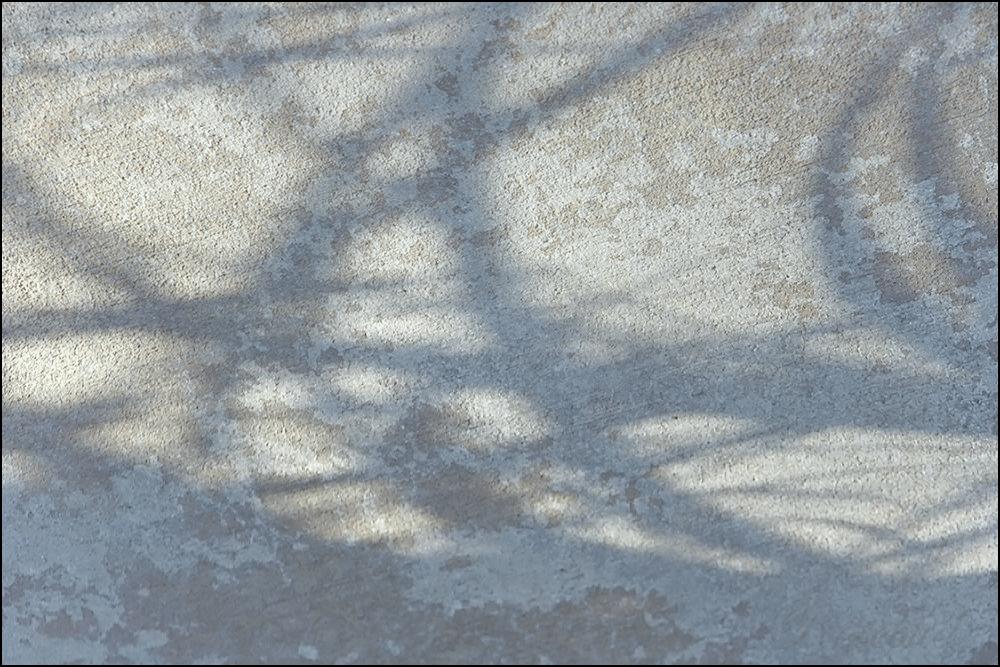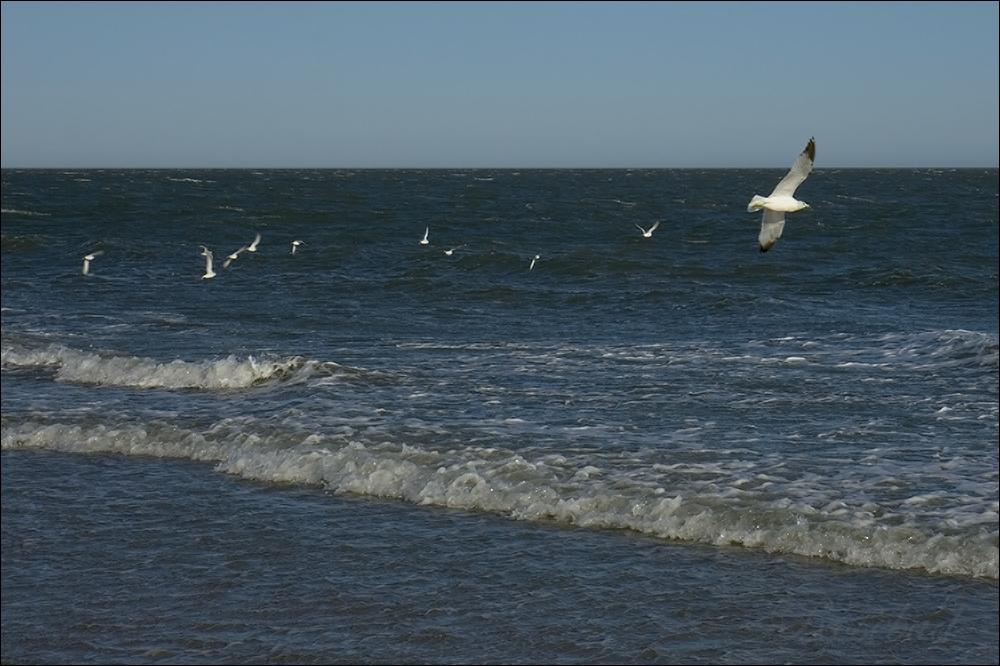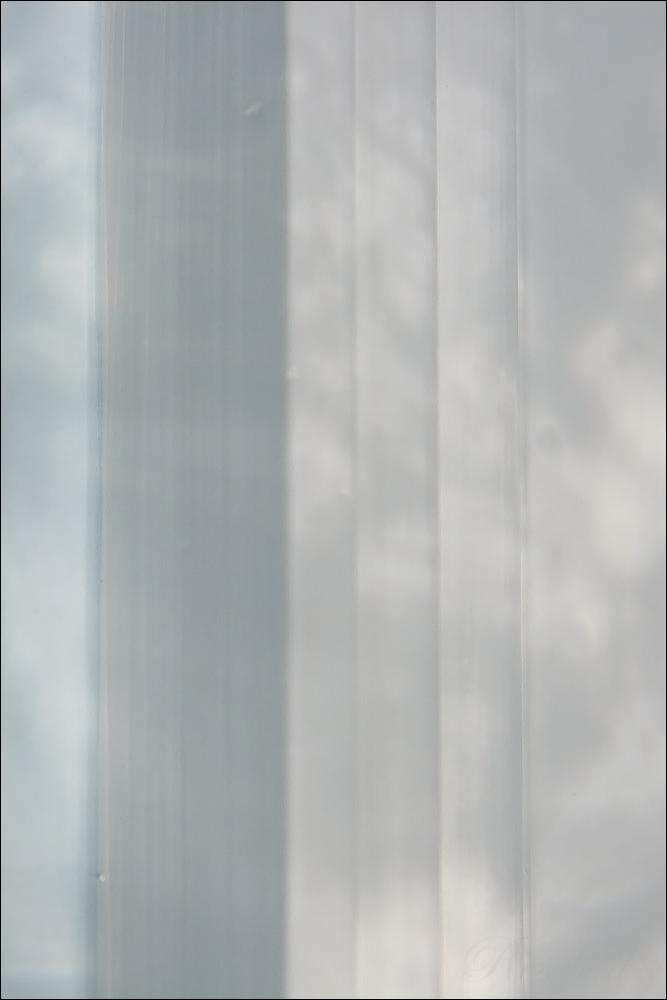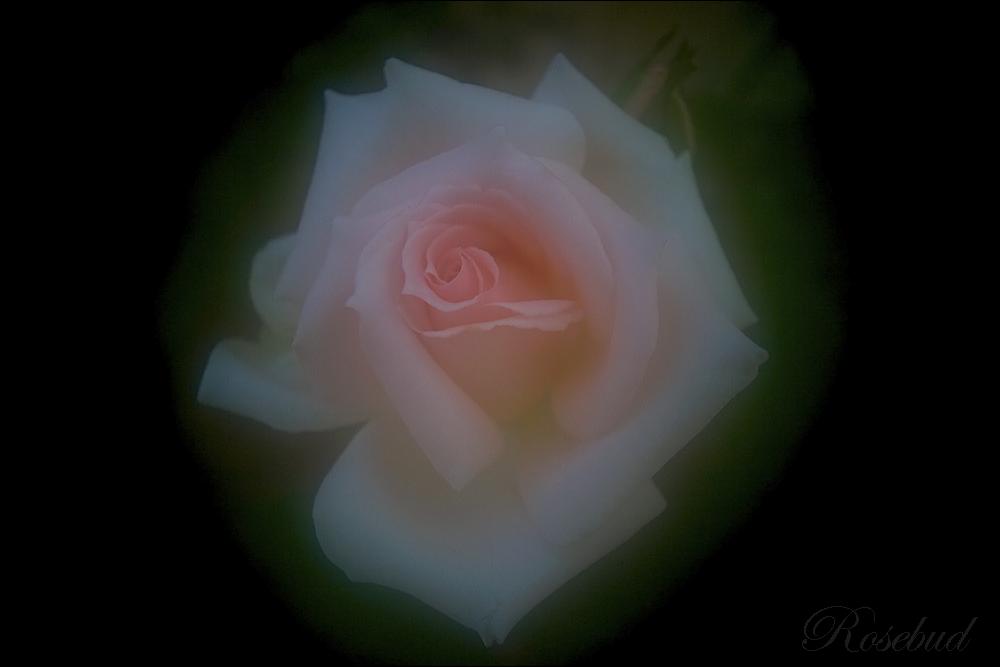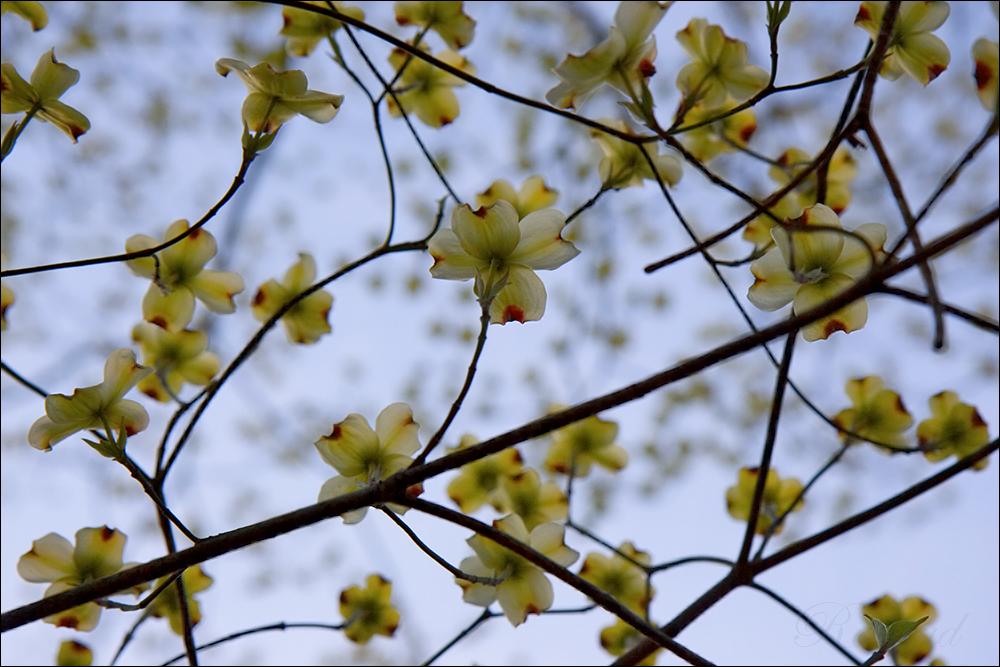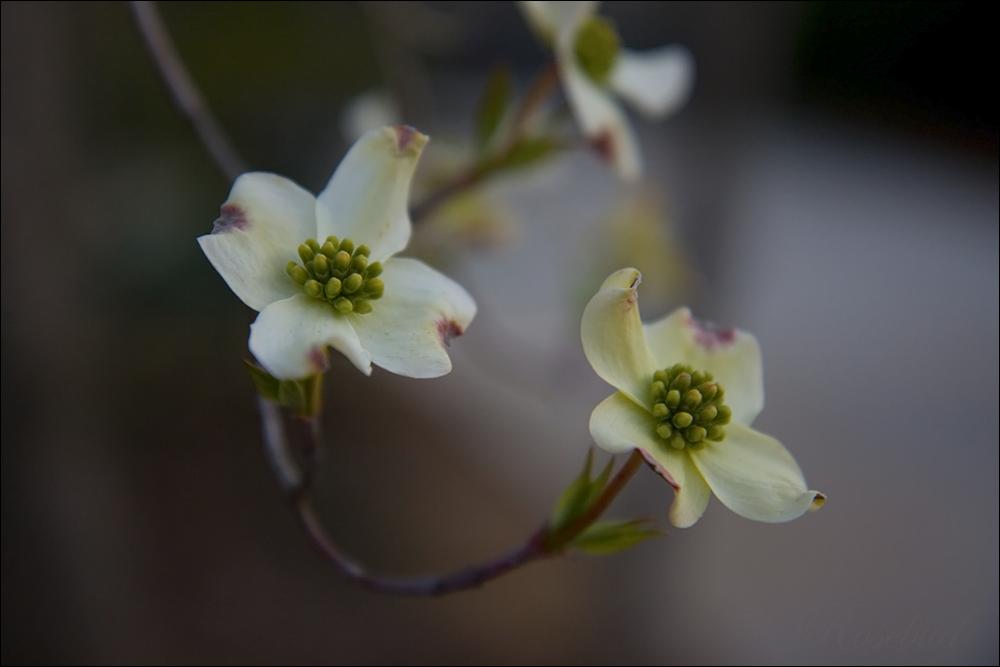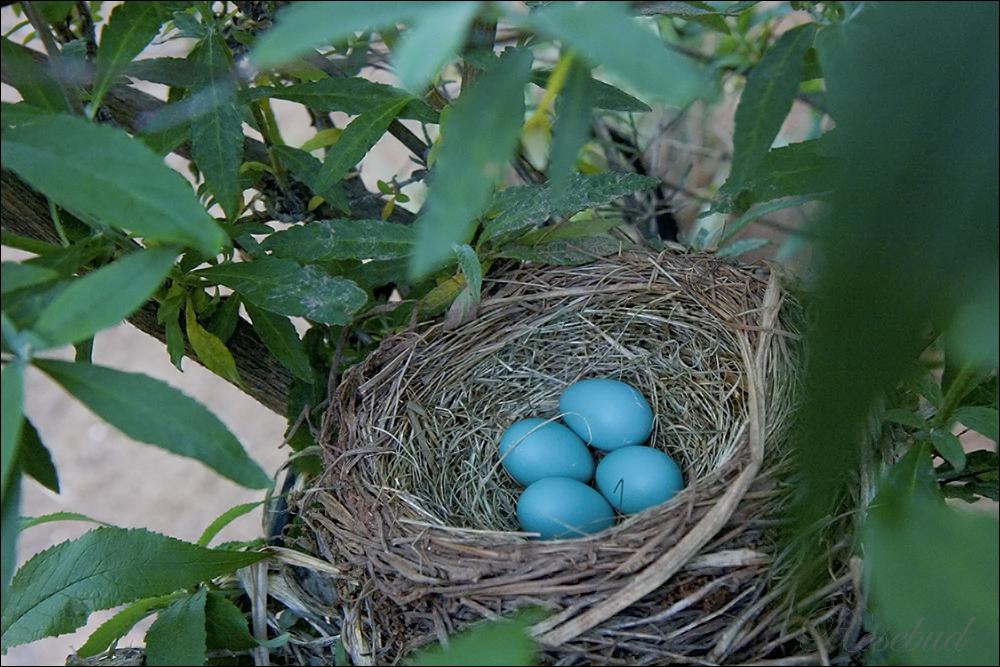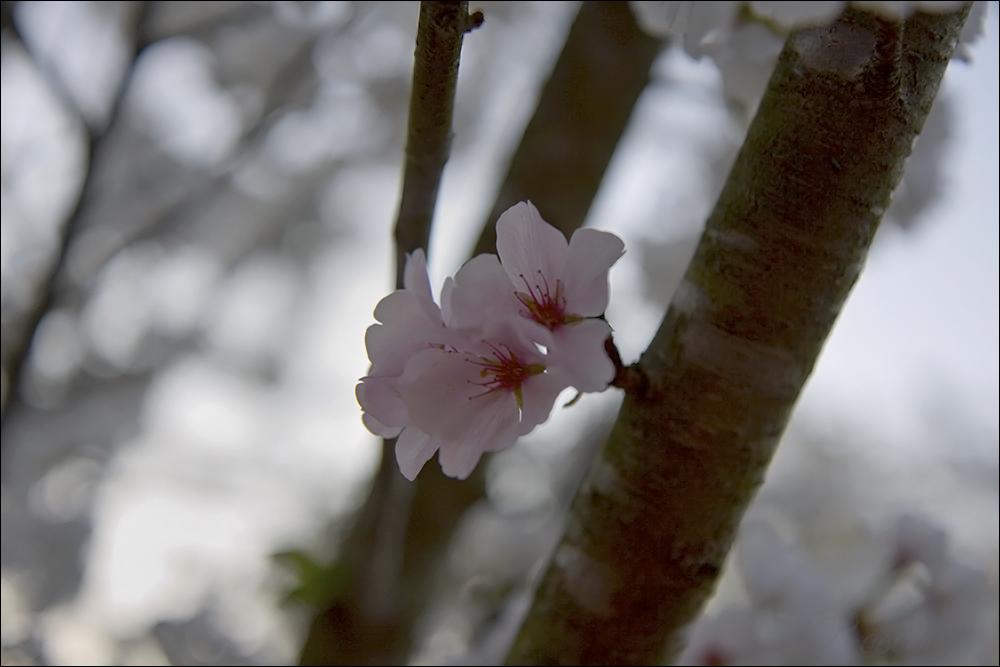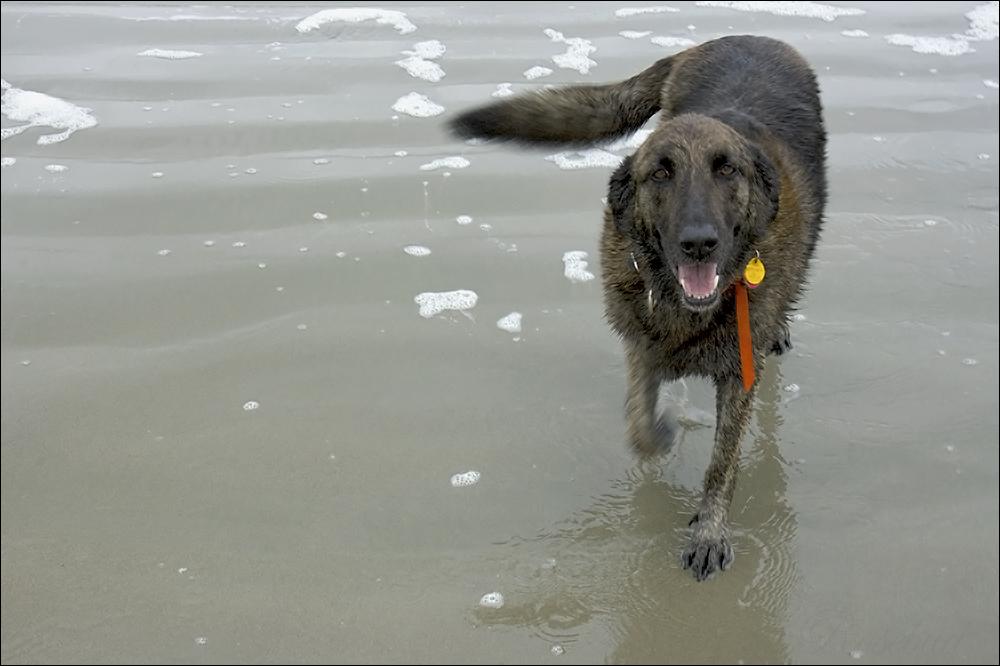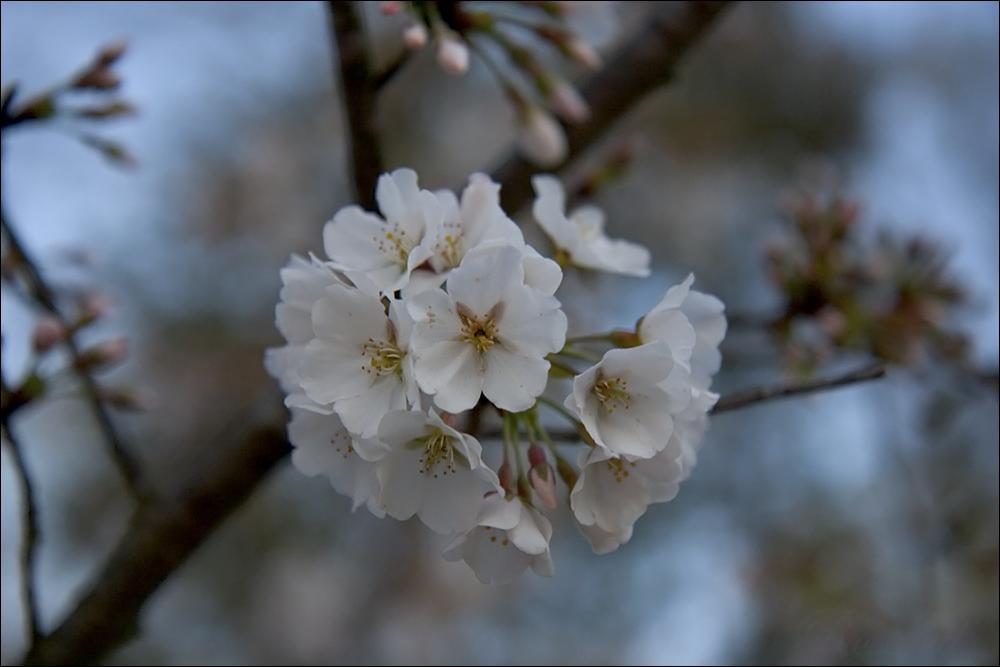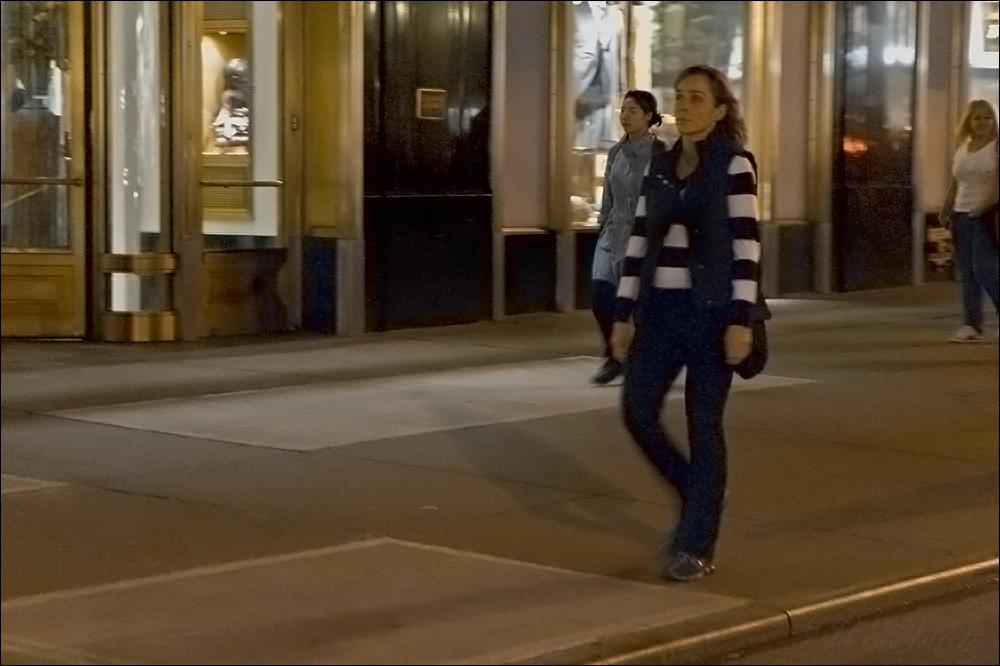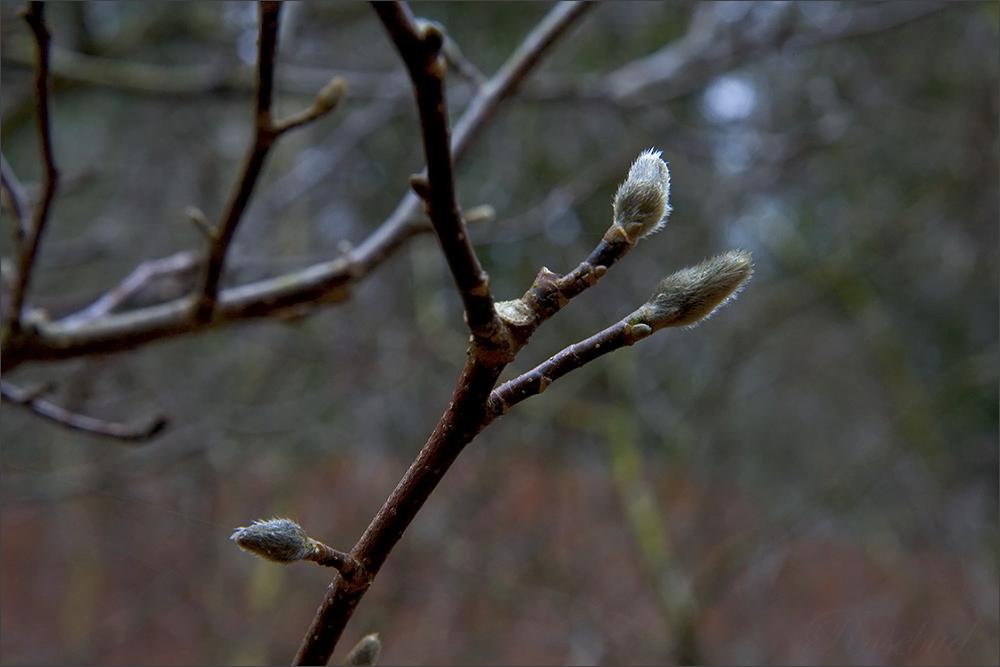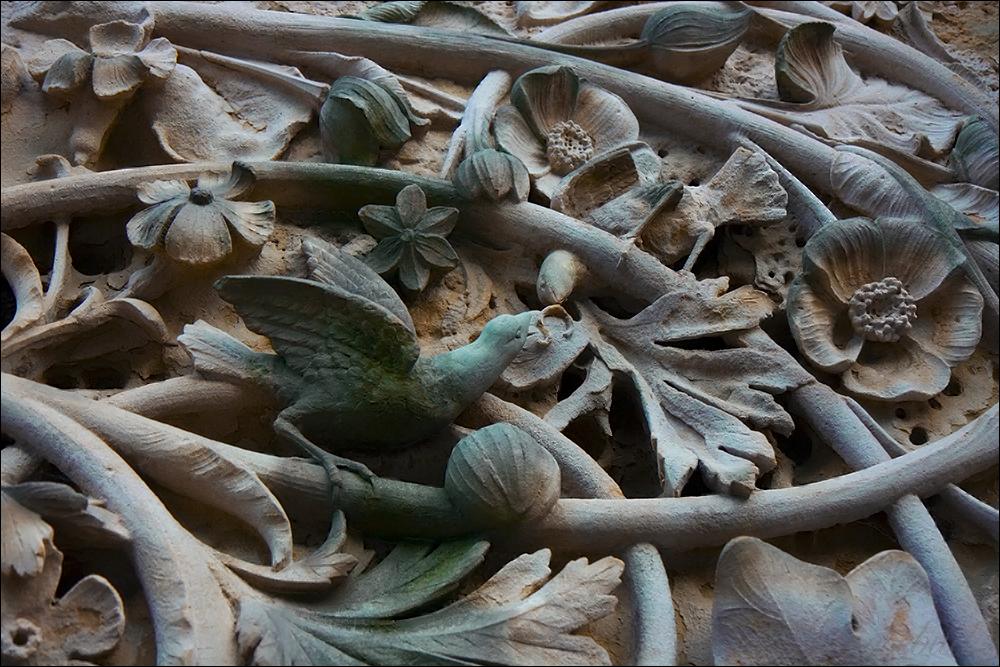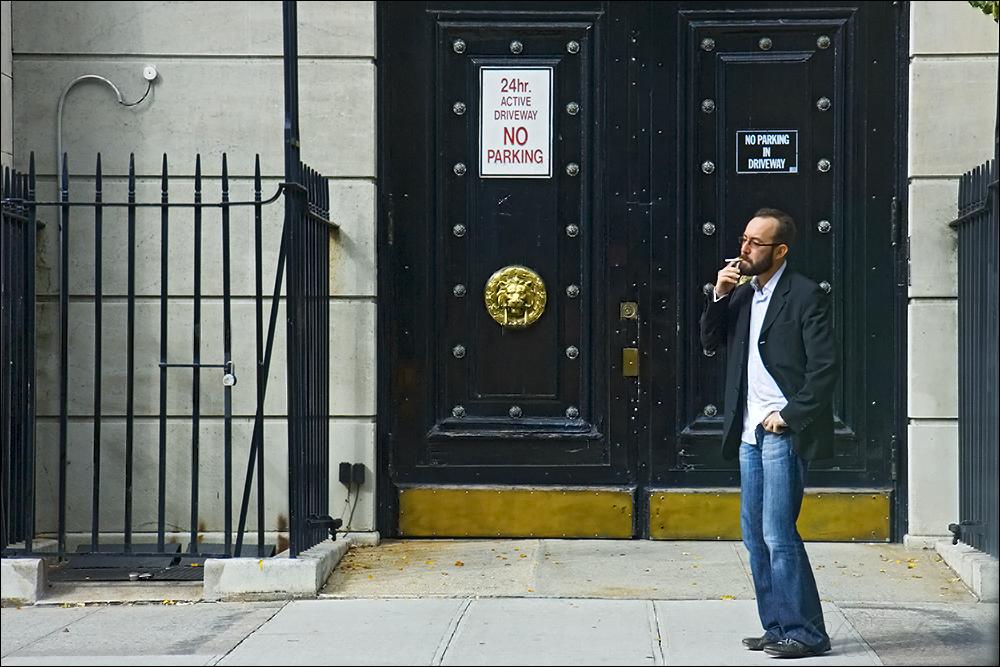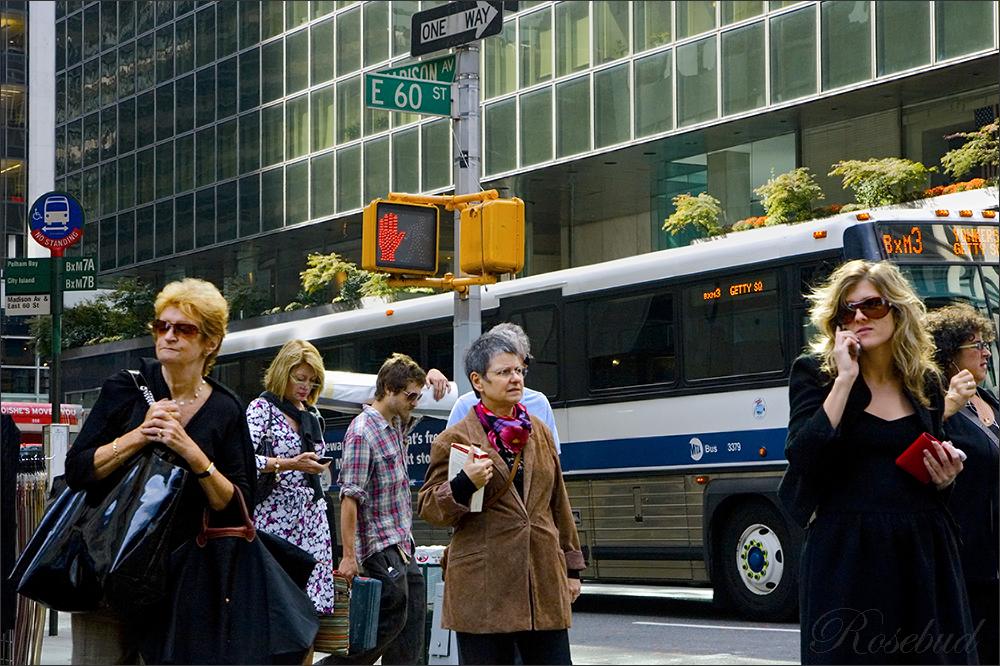Thursday, December 31
Year's End
Now winter downs the dying of the year,
And night is all a settlement of snow;
From the soft street the rooms of houses show
A gathered light, a shapen atmosphere,
Like frozen-over lakes whose ice is thin
And still allows some stirring down within.
I've known the wind by water banks to shake
The late leaves down, which frozen where they fell
And held in ice as dancers in a spell
Fluttered all winter long into a lake;
Graved on the dark in gestures of descent,
They seemed their own most perfect monument.
There was perfection in the death of ferns
Which laid their fragile cheeks against the stone
A million years. Great mammoths overthrown
Composedly have made their long sojourns,
Like palaces of patience, in the gray
And changeless lands of ice. And at Pompeii
The little dog lay curled and did not rise
But slept the deeper as the ashes rose
And found the people incomplete, and froze
The random hands, the loose unready eyes
Of men expecting yet another sun
To do the shapely thing they had not done.
These sudden ends of time must give us pause.
We fray into the future, rarely wrought
Save in the tapestries of afterthought.
More time, more time. Barrages of applause
Come muffled from a buried radio.
The New-year bells are wrangling with the snow.
-- Richard Wilbur
Richard Wilbur (link)
Posted by
rb
at
12/31/2009
![]()
Thursday, December 24
Christmas Trees
Bonhoeffer in his skylit cell
bleached by the flares' candescent fall,
pacing out his own citadel,
restores the broken themes of praise,
encourages our borrowed days,
by logic of his sacrifice.
Against the wild reasons of the state
his words are quiet but not too quiet.
We hear too late or not too late.
-- Geoffrey Hill
About Dietrich Bonhoeffer and "Christmas Trees" (link)
Geoffrey Hill (link)
Posted by
rb
at
12/24/2009
![]()
Monday, December 21
Sunday, December 20
To a Leaf Falling in Winter
At sundown when a day's words
have gathered at the feet of the trees
lining up in silence
to enter the long corridors
of the roots into which they
pass one by one thinking
that they remember the place
as they feel themselves climbing
away from their only sound
while they are being forgotten
by their bright circumstances
they rise through all of the rings
listening again
afterward as they
listened once and they come
to where the leaves used to live
during their lives but have gone now
and they too take the next step
beyond the reach of meaning
-- W.S. Merwin
W.S. Merwin (link)
Posted by
rb
at
12/20/2009
![]()
Friday, December 11
do not be ashamed if at times your eyes fill with tears (it's good for you)
… tonight we are privileged to undertake Rachmaninov's "All-Night Vigil." Those of you who have baby sitters who expect you home before dawn may wish to step outside for a few moments to make a phone call. (Lest you be frightened by the title, be apprised that the 15 musical numbers take but 65 minutes in the singing.)
Though written during the early years of World War I (1915), with the restrictions which Rachmaninov imposed upon himself to insure their suitability for liturgical performance, their musical idiom clearly "looks backward" –to the 500-year-old orthodox Znamenny chant as clothed in the loving 19th century language of "the last great representative of Russian Romanticism."
… Ranging from unison voices to eight and twelve parts, and moving from simple chant through variation to improvisation, the Vespers sometimes can be a complex work to put together, but it speaks so directly and simply to the heart, that one of the recurrent difficulties in rehearsal is that we become so emotionally touched–that it is next to impossible to continue singing.
Do not be ashamed if at times your eyes fill with tears (it's good for you)
And it almost certainly is best if we withhold applause until the Vespers are complete. We will not be insulted if even then you do not applaud.
-- Robert Shaw, from "Opening Remarks at Spivey Hall," May 14-15, 1993 The Robert Shaw Reader
All-Night Vigil (link)
Posted by
rb
at
12/11/2009
![]()
Monday, December 7
That which finds expression in art cannot thereafter be unsaid. This may be why art matters at all.
-- Charles Harrison Since 1950
Posted by
rb
at
12/07/2009
![]()
Sunday, December 6
Consciously I had done nothing to promote any such development; on the contrary, my sympathies were on the other side. Something must therefore have been behind the scenes, some intelligence, at any rate something more intelligent than myself. For the extraordinary idea that in the light of consciousness the inner realm of light appears as a gigantic shadow was not something I would have hit on of my own accord.
-- C.G. Jung Memories
Posted by
rb
at
12/06/2009
![]()
Friday, December 4
She held men closely with discovery,
Almost as speed discovers, in the way
Invisible change discovers what is changed,
In the way what was has ceased to be what is.
It was not her look but a knowledge that she had.
She was a self that knew, an inner thing,
Subtler than look's declaiming, although she moved
With a sad splendor, beyond artifice,
Impassioned by the knowledge that she had,
There on the edges of oblivion.
O exhalation, O fling without a sleeve
And motion outward, reddened and resolved
From sight, in the silence that follows her last word–
-- Wallace Stevens, lines from "The Owl in the Sarcophagus"
Read more (link)
Posted by
rb
at
12/04/2009
![]()
Friday, November 27
Thursday, November 26
Sonnet LXXIII
That time of year thou mayst in me behold,
When yellow leaves, or none, or few, do hang
Upon those boughs which shake against the cold,
Bare ruined choirs, where late the sweet birds sang.
In me thou see'st the twilight of such day,
As after sunset fadeth in the west,
Which by and by black night doth take away,
Death's second self, that seals up all in rest.
In me thou see'st the glowing of such fire,
That on the ashes of his youth doth lie,
As the death-bed whereon it must expire,
Consumed with that which it was nourished by.
This thou perceiv'st, which makes thy love more strong,
To love that well which thou must leave ere long.
-- William Shakespeare
Posted by
rb
at
11/26/2009
![]()
Monday, November 23
And then a new light, less dazzling, no doubt, than the other illumination which had made me perceive that the work of art was the sole means of rediscovering Lost Time, shone suddenly within me. And I understood that all the materials for a work of literature were simply my past life; I understood that they had come to me, in frivolous pleasures, in indolence, in tenderness, in unhappiness, and that I had stored them up without divining the purpose for which they were destined or even their continued existence, any more than a seed does when it forms within itself a reserve of all the nutritious substances from which it will feed a plant.
-- Marcel Proust Remembrance of Things Past
Tr. Moncrieff/Kilmartin
Posted by
rb
at
11/23/2009
![]()
Saturday, November 14
Entropy is only found when the parts are viewed in association, and it is by viewing or hearing the parts in association that beauty and melody are discerned.
-- Arthur Eddington The Nature of the Physical World
Arthur Eddington
Posted by
rb
at
11/14/2009
![]()
Sunday, November 8
No doubt my poetry errs on the side of oddness. I hope in time to have a more balanced and Miltonic style. But as air, melody, is what strikes me most of all in music and design in painting, so design, pattern or what I am in the habit of calling 'inscape' is what I above all aim at in poetry.
-- Gerard Manley Hopkins Letter to Robert Bridges 15 February 1879
Posted by
rb
at
11/08/2009
![]()
Friday, October 30
. . . how hard
it is, to apprehend something so large
in scale and yet so minutely detailed.
Like trying to familiarize yourself,
exactly, with the side of a mountain:
this birch, this rock-pool, this square mosaic
yard of tesserated leaves, autumnal,
a jeweled reliquary. Trying to see
each element of the mountain and then
through them, the whole, since music is only
given to us in time, each phrase parcelled
out, in time.
-- Mark Doty, lines from "Grosse Fuge" Atlantis
Atlantis
Posted by
rb
at
10/30/2009
![]()
Saturday, October 17
Thursday, October 15
Underneath the water, or inside it, is a dark grey flame:
I have seen it over and over, the same sea, the same,
slightly, indifferently swinging above the stones,
icily free above the stones,
above the stones and then the world.
If you should dip your hand in,
you wrist would ache immediately,
your bones would begin to ache and your hand would burn
as if the water were a transmutation of fire
that feeds on stones and burns with a dark gray flame.
-- Elizabeth Bishop, lines from "At the Fishhouses"
At the Fishhouses (poem and commentary by George Szirtes) (link)
Posted by
rb
at
10/15/2009
![]()
Wednesday, October 7
Wednesday, September 30
These are then two arts which enclose man in man; or, rather, which enclose the being in its work, and the soul in its acts and in the production of its acts, as our former body was entirely encased in the creations of its eye, and surrounded with sight. By means of two arts it wraps itself up, in two different ways, in their inner laws and wills, which are figured forth in one material or another, stone or air.
-- Paul Valéry Eupolinos
Tr. Denise Folliot
Posted by
rb
at
9/30/2009
![]()
Tuesday, September 29
Swimming through the oval, saucer-like reflections, dipping and flashing on the sea surface, one traced the colors back to the origins of those reflections. Some came directly from the sky and different colored clouds, some from the golden greens of the vegetation growing on the cliffs, some from the red-orange of the seaweed on the blues and violets of the adjacent rocks, and, all between, the actual hues of the water, according to its various depths and over what it was passing. The entire elusive, unstable, flicking complex subject to the changing qualities of the light itself . . . it was as though one was swimming through a diamond.
-- Bridget Riley The Eye's Mind
Bridget Riley (link)
Posted by
rb
at
9/29/2009
![]()
Sunday, September 20
the line
How are you, Robert? BRIGHTER STILL EARTHBOUND
I ASK : NO ACCIDENT? & GET WHITE SOUND
A BLUR EACH MOMENT CLOSER TO SOME CLEAR
SONG OF BLISS : ONE OF THE MARVELS HERE.
ANOTHER IS TO TALK TO THAT WORD'S NAMESAKE.
Andrew? THE VERY SAME DO I CALL HIM ANDY?
I called you Andrew in "The Summer People".
AH THEN I CAN PRACTISE IN THE GLASS
What does he say in Heaven? Can you quote?
The cup, with a mimed clearing of its throat,
Enunciates : 'WHAT'S WRONG WITH EMPIRES PRAY?
GREATLY BENEFICIAL. FOR THE SUBJECTED,
DELICIOUS SUBJUGATION & FOR THE RULERS,
TERRIBLE FEARS OF LOSING, BALANCED BY
RARE OPPORTUNITIES FOR BEASTLINESS'
Anything about poetry? EVERYTHING!
I DRINK IT IN : 'THE LINE, MY DEAR NEW FRIEND,
THE LINE! LET IT RUN TAUT & FLEXIBLE
BETWEEN THE TWO POLES OF RHYTHM & RHYME,
& WHAT YOU HANG ON IT MAY BE AS DULL
OR AS PROVOCATIVE AS LAUNDRY.' How does
New work get round in Heaven? WE ADEPT READERS
MERELY CALL TO MIND THE MOLECULAR PAGE
PLUS A LIVING KNOWN OR UNKNOWN AUTHOR
& THINK 'NEW POEM PLEASE' & PRESTO ! EITHER
SOME SHAGGY DOGGEREL FROM THE COAST APPEARS
OR A SPARKLER FROM ACADEME. SAME PRINCIPLE
EXACTLY WHEREBY WE POP UP WITHIN YR
FIELD OF REFLECTION AS U THINK OF US
THEN FLASH BACK TO OUR BLIND WORK IN THE VOID
WHEN YR ATTENTION DIES
-- James Merrill, from The Changing Light at Sandover
About The Changing Light at Sandover (link)
Posted by
rb
at
9/20/2009
![]()
Wednesday, September 16
Rain Towards Morning
The great light cage has broken up in the air,
freeing, I think, about a million birds
whose wild ascending shadows will not be back,
and all the wires come falling down.
No cage, no frightening birds; the rain
is brightening now. The face is pale
that tried the puzzle of their prison
and solved it with an unexpected kiss,
whose freckled unsuspected hands alit.
-- Elizabeth Bishop
Posted by
rb
at
9/16/2009
![]()
Tuesday, September 15
Postscript
And some time make the time to drive out west
Into County Clare, along the Flaggy Shore,
In September or October, when the wind
And the light are working off each other
So that the ocean on one side is wild
With foam and glitter, and inland among stones
The surface of a slate-grey lake is lit
By the earthed lightning of a flock of swans,
Their feathers roughed and ruffling, white on white,
Their fully grown headstrong-looking heads
Tucked or cresting or busy underwater.
Useless to think you'll park and capture it
More thoroughly. You are neither here nor there,
A hurry through which known and strange things pass
As big soft buffetings come at the car sideways
And catch the heart off guard and blow it open.
-- Seamus Heaney, from The Spirit Level
Posted by
rb
at
9/15/2009
![]()
Monday, September 7
Just Once
Just once I knew what life was for.
In Boston, quite suddenly, I understood;
walked there along the Charles River,
watched the lights copying themselves,
all neoned and strobe-hearted, opening
their mouths as wide as opera singers;
counted the stars, my little campaigners,
my scar daisies, and knew that I walked my love
on the night green side of it and cried
my heart to the eastbound cars and cried
my heart to the westbound cars and took
my truth across a small humped bridge
and hurried my truth, the charm of it, home
and hoarded these constants into morning
only to find them gone.
-- Anne Sexton, from love poems
Posted by
rb
at
9/07/2009
![]()
Monday, August 24
Often, our experience of beauty will be the first hint of what each of us at some point will dare call our soul. For don’t those first stirrings of that eternally uncertain, barely grasped notion of something more than mere mind, mere thought, mere emotion, usually first come to us in the line of a poem, a passage of music, of the unreal yet more-than-real image in a painting?
-- C.K. Williams, in "All Around the World the Same Song" Poetry March 2009
Read more
Posted by
rb
at
8/24/2009
![]()
Friday, August 14
forests of symbols
La Nature est un temple où de vivants piliers
Laissent parfois sortir de confuses paroles;
L’homme y passe à travers des forêts de symboles
Qui l’observent avec des regards familiers.
Nature is a temple whose living pillars
Sometimes give forth a babel of words;
Man wends his way through forests of symbols
Which look at him with their familiar glances.
Comme de longs échos qui de loin se confondent
Dans une ténébreuse et profonde unité,
Vaste comme la nuit et comme la clarté,
Les parfums, les couleurs et les sons se répondent.
As long-resounding echoes from afar
Are mingling in a deep, dark unity,
Vast as the night or as the orb of day,
Perfumes, colors, and sounds commingle.
-- Charles Baudelaire, lines from "Correspondances"
Tr. Harry Zohn
Posted by
rb
at
8/14/2009
![]()
Saturday, July 25
he sang
He sang the brightness of mornings and green rivers,
He sang of smoking water in the rose-colored daybreaks,
Of colors: cinnabar, carmine, burnt sienna, blue,
Of the delight of swimming in the sea under marble cliffs,
Of feasting on a terrace above the tumult of a fishing port,
Of the tastes of wine, olive oil, almonds, mustard, salt.
Of the flight of the swallow, the falcon,
Of a dignified flock of pelicans above a bay,
Of the scent of an armful of lilacs in summer rain,
Of his having composed his words always against death
And of having made no rhyme in praise of nothingness.
-- Czeslaw Milosz, lines from "Orpheus and Eurydice" second space
Posted by
rb
at
7/25/2009
![]()
Saturday, July 11
And builds, within, a tower that is not stone
(Not stone can jacket heaven)–but slip
Of pebbles,–visible wings of silence sown
In azure circles, widening as they dip
-- Hart Crane, lines from "The Broken Tower"
The Broken Tower
Posted by
rb
at
7/11/2009
![]()
Saturday, July 4
When It Comes
Any time. Now. The next minute.
Years from today. You lean forward
and wait. You relax, but you don't forget.
Someone plans an elaborate party
with a banquet, dancing, even fireworks
when feasting is over. You look at them:–
All those years when you searched the world
like a ferret, these never happened–your marriage,
your family, prayers, curses. Only dreams.
A vacuum has opened everywhere. Cities,
armies, those chairs ranked in the great
hall for the audience–there isn't anyone.
Like a shutter the sky opens and closes
and the show is over. The next act
will deny that anything ever happened.
Your hand falls open. It is empty. It never
held a knife, a flower, gold,
or love, or now. Lean closer–
Listen to me: there isn't any hand.
-- William Stafford, from The Answers Are Inside the Mountains
Posted by
rb
at
7/04/2009
![]()
Saturday, June 27
Sunday, June 21
nova stella
A poet of Shakespeare's time was apt to say that his love for his beloved was not "sublunar." He meant that his affection was like the stars–constant and unchanging. According to the philosophy that prevailed in Shakespeare's time, change occurred only below the Moon, in our terrestrial world of jumbled elements and inconstant emotions. By contrast, the celestial realm above the Moon, like the poet's love, was fixed and eternal. Or so people believed. And then, to the consternation of poets and philosophers, in the autumn of 1572 a new star blazed in the constellation Cassiopeia. The star was well placed for viewing, high overhead in the evening sky. It was brighter than any other star, bright enough to be seen in broad daylight. All Europe was agog. But was this new star really above the Moon, in which case philosophers were wrong and the heavens do change?
. . . On the evening of November 11, 1572, Tycho was walking home to supper when he happened to glance up at the stars above his head. He saw the new star at once, the nova stella. Afraid to believe his own eyes, he asked his servants and neighbors to look into the sky and describe what they saw. They confirmed his observation. The star was real. Tycho was a talented astronomer, and he had recently built a fine new instrument (not a telescope; that device was still a few decades away) for determining the positions of stars. Carefully, he measured the angular separation of the new star from the stars of Cassiopeia. He continued these observations at different times of the night and throughout the winter as the star slowly faded. He also collected measured positions of the new star from other European observers. He was trying to determine the star's parallax, the apparent change in the position of an object when viewed from two different places . . . The object in Cassiopeia did not shift at all against the background stars when viewed from different places. From these observations Tycho knew that the new star was in the highest heavens, far beyond the Moon. The philosophers were wrong; the heavens do change.
-- Chet Raymo An Intimate Look at the Night Sky
Tycho Brahe (a father of modern astronomy)
Posted by
rb
at
6/21/2009
![]()
Wednesday, June 3
to carve
As he walked down a street in Baltimore, Oliver passed the shop of a stonemason. There was a little yard around the shop powdered with stonedust. In the yard were scattered pieces of stone, blocks of grey Vermont granite, Georgia marble, and several bases of sandstone. There was also a monument from Carrarra in Italy: it was of a marble angel, with bright carved wings. The angel held a lily delicately upwards between its cold elegant fingers.
Oliver walked on, returned, and peered through the dirty windows of the little shop. Within he saw smooth marble slabs of death, a stone lamb couchant on a granite marker, a cherub volant on a plump foot, a scrollwork, and two joined armless hands. He also saw two more angels with simpering marble faces, and furled wings.
A bearded brawny man wearing a work apron was standing in the yard above a wooden trestle. He held a great wooden mallet and a chisel in his hands and he was chipping with tense craft at a design that had been penciled upon the surface of a marble slab.
As Oliver looked at the man and the big angel with its carved stipe of lilystalk, a cold and nameless excitement possessed him. The long fingers of his big hands curled. He felt that he wanted to carve delicately with a chisel more than anything in the world. He wanted to wreak something dark and unspeakable in him into cold stone. He wanted to carve an angel's head.
Oliver entered the yard and asked the man for a job. The man put down his mallet and looked at him.
"Son," he said kindly, "it is hard work and I can not pay you much while you learn."
"I don't care," said Oliver. "I want to learn the business."
He became the stonecutter's apprentice. He worked in that dusty yard for five years. He became a stonecutter. When his apprenticeship was over, he had become a man.
-- Thomas Wolfe O Lost
Posted by
rb
at
6/03/2009
![]()
Friday, May 22
every song
Stacks of books, every page, characters’
rages and poets’ strange contraptions
of syntax and song, every song
even when there isn’t one.
-- Dean Young, lines from "Delphiniums in a Window Box"
Delphiniums in a Window Box
Posted by
rb
at
5/22/2009
![]()
Tuesday, May 19
now
For how many years have you gone through the house shutting the windows,
while the rain was still five miles away
and veering, o plum-colored clouds, to the north,
away from you
and you did not even know enough
to be sorry,
you were glad
those silver sheets, with the occasional golden staple,
were sweeping on, elsewhere,
violent and electric and uncontrollable--
and will you find yourself finally wanting to forget
all enclosures, including
the enclosure of yourself, o lonely leaf, and will you
dash finally, frantically,
to the windows and haul them open and lean out
to the dark, silvered sky, to everything
that is beyond capture, shouting
I'm here, I'm here! Now, now, now, now, now.
-- Mary Oliver, lines from "From the Book of Time"
Posted by
rb
at
5/19/2009
![]()
Sunday, May 10
only for a while
The leaves and branches moved, green on darker green, shadow on shadow, rising right up to the clear blue sky. A thick rustling of foliage which sighed as the cool breeze moved through it, but somehow confirmed its density, the secrecy that surrounded its branches, its lush growth. It cut out much of the morning sun, so that small lozenges of yellow light fell on the footpath, but only for a while, then light and shadow would move and disperse as the shadow branches wavering on the ground sent shadow leaves moving, and with it, the sound of air sighing in a little rush of sound, the small shapes of bright light moved also.
-- Eva Figes Light
Posted by
rb
at
5/10/2009
![]()
Saturday, April 25
Noisetone
Each artist embarks on a personal search.
An artist may take introspective refreshment from green.
Or so they say in Barcelona when air is dry.
In our country it is a water sprinkler that hints, "rinsed green."
Colors often break themselves into separate hues
of noisetone. In a Barcelona cabaret when green is overtaken,
it is stirred into the mint color of drink.
The spirit is lifted among primary colors. Nine rows of color.
The future writ in white spaces.
-- Barbara Guest
The Collected Poems of Barbara Guest
Posted by
rb
at
4/25/2009
![]()
Sunday, April 19
at heart the same
a medley of scattered fragments—one so calm and shy, almost detached and as if philosophical, the other so urgent, anxious, imploring—were nevertheless the same prayer, bursting forth like different inner sunrises, and merely refracted through the different mediums of other thoughts, of artistic researches carried on through the years in which he had sought to create something new. A prayer, a hope which was at heart the same, distinguishable beneath these disguises in the various works of Viteuil.
-- Marcel Proust In Search of Lost Time
Tr. Moncrieff/Kilmartin/Enright
Posted by
rb
at
4/19/2009
![]()
Friday, April 10
Thursday, April 2
Half Moon, Small Cloud
Caught out in daylight, a rabbit's
transparent pallor, the moon
is paired with a cloud of equal weight:
the heavenly congruence startles.
For what is the moon, that it haunts us,
this impudent companion immigrated
from the system's less fortunate margins,
the realm of dust collected in orbs?
We grow up as children with it, a nursemaid
of a bonneted sort, round-faced and kind,
not burning too close like parents, or too far
to spare even a glance, like movie stars.
No star but in the zodiac of stars,
a stranger there, too big, it begs for love
(the man in it) and yet is diaphanous,
its thereness as mysterious as ours.
-- John Updike
Listen to a reading of this poem by Charles McGrath (link)
Posted by
rb
at
4/02/2009
![]()
Thursday, March 26
a commensurate gaze
A virginity which, in its solitude, faced with the transparency of a commensurate gaze, has itself been as it were fragmented into its component whitenesses, one upon the next, the wedding — proofs of the Idea.
-- Stephane Mallarmé "Mystery in Literature"
Tr. Mary Ann Caws
Mallarmé in Prose
Posted by
rb
at
3/26/2009
![]()
Friday, March 20
Saut dans le vide
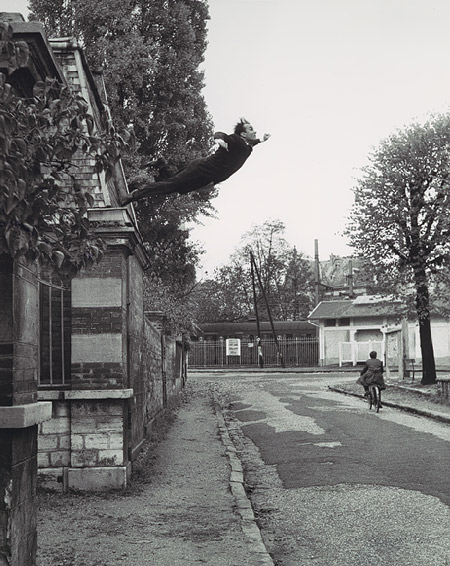
Saut dans le vide (Leap into the Void) by Yves Klein, Harry Shrunk, John Kender 1960 (link)
Posted by
rb
at
3/20/2009
![]()
happy vernal equinox
The soul has that measureless pride which consists in never acknowledging any lessons but its own. But it has sympathy as measureless as its pride and the one balances the other and neither can stretch too far while it stretches in company with the other. The inmost secrets of art sleep with the twain.
-- Walt Whitman, preface Leaves of Grass 1855
Posted by
rb
at
3/20/2009
![]()
Tuesday, March 10
Monday, March 2
see
as light that can never
see itself
as none can lie still
falling free
I see your eyes
see
-- Inger Christensen, lines from it
Tr. Susanna Nied
Inger Christensen
Posted by
rb
at
3/02/2009
![]()
Friday, February 6
Theory of Incompletion
I'm painting the apartment, elaborate project,
edging doorways and bookcases,
two coats at least, and on the radio
—the cable opera station—something
I don't know, Handel's Semele,
and either it's the latex fumes or the music itself
but I seem never to have heard anything so radiant,
gorgeous rising tiers of it
ceasing briefly then cascading again,
as if baroque music were a series of waterfalls
pouring in the wrong direction, perpetually up
and up, twisting toward the empyrean.
When a tenor—playing the role of a god,
perhaps the god of art?—calls for unbridled joy
the golden form of his outburst
matches the solar confidence of its content,
and I involuntarily say, ah,
I am so swept up by the splendor,
on my ladder, edging the trim
along the crown molding, up where
the fumes concentrate. I am stroking
the paint onto every formerly white inch,
and of course I know Semele will end,
but it doesn't seem it ever has to:
this seemingly endless chain of glorious conclusions,
writhing stacked superb filigree
—let it open out endlessly,
let door after door be slid back
to reveal the next cadence,
the new phrasing, onward and on.
I am stilled now, atop my ladder,
leaning back onto the rungs, am the rapture
of denied closure, no need to go anywhere,
entirety forming and reasserting itself, an endless
—self-enfolding, self-devouring—
of which Handel constructs a model
in music's intricate apportionment
of minutes. And then there's barely a beat
of a pause before we move on to Haydn,
and I am nowhere near the end of my work.
-- Mark Doty, from fire to fire
Mark Doty
Posted by
rb
at
2/06/2009
![]()
Friday, January 23
a moving form
Waves have a curious kind of being, even water waves. A wave in deep water, moving in a certain direction along the surface, is composed of water that itself never actually moves in that direction. Instead, the water molecules only go up and down, as a buoy will reveal, while the wave appears to move horizontally. Even though it appears to be as solid and substantial as any material object, a wave is a moving form, not simply a single body. At each successive instant, a wave is an ever-new assemblage of water, whose changing individuality is subsumed under the outward form of the whole wave. In this sense, a wave is a process, not a substance, as Maxwell noted. Waves interfere with each other because they are interchangeable and thus not distinguishable; two processes can coincide in space and time, but two substances cannot. Thus the wave reveals a whole new possibility of identity, for one identifies waves by their amplitude (that is, height) and by their wavelength or frequency, rather than by the ever-changing bits of water that make up the wave at any time. Even if one distinguishes one wave from another as they approach from a distance, when they pass through each other, one can no longer sustain that distinction, which makes sense only in the context of ordinary bodies.
-- Peter Pesic Seeing Double: Shared Identities in Physics, Philosophy, and Literature
Posted by
rb
at
1/23/2009
![]()
Tuesday, January 20
letting go
One does not paint yesterday, one does not even paint today, one paints tomorrow, one paints what will be, one paints 'the imminence of.'
And to do that, letting go of all ties, one flings oneself beyond the ego. This is perhaps the greatest lesson painting gives us: flinging oneself beyond the ego. For the ego is the last root preventing flight. Or the last anchor. One has to unfasten oneself the best one can, with a snap, or by slowly filing away the soul-ring of lead.
I imagine it's easier for a landscape painter than for a writer to get free; the charm of the visible world is so powerful. At times, the painter's ego is no more attached than a milk tooth. A pull, and straight away, with a leap, in the middle of creation. We are born together. It's raining. We know nothing. We are part of everything.
-- Hélène Cixous "The Last Painting or the Portrait of God" Coming to Writing
Tr. Sarah Cornell, Susan Sellers and Deborah Jenson
Hélène Cixous
A portion of this essay can be read online here
Posted by
rb
at
1/20/2009
![]()
Tuesday, January 13
some said, showing forth
From somewhere near the well we
heard singing, voice an unheard-of
porridge, capsicum and roux,
"Shadow
mouth," it lamented, "shook my tree."
More than could be carried we caught,
were whisked away by, movement the
one mooring we knew. Eyes tightly
shut, one tear squeezed out by the
impending end, what we wanted
was to
endlessly verge on exit, angling
out, tangent to circle's edge, on
our way where we'd be the last to
say . . . Let all edges converge, it
seemed
we said, cut away would-be end. Shell's
edge, knife's edge, pearl we'd be
prompted by, refugees from where
likewise last to say . . . It wasn't
wander what we did, we circled. Frayed
at its
edge though it was, wheel of soul, verge
we were driven by . . . Verge that we wanted
verge was the song we sang had there been a
song we sang. No song left our lips.
Nonsonant, we rounded circle's edge,
nonsonant ring shout, verge our muse
and mount. Verge that we wanted verge
we bordered on singing. No song left
our lips. It wasn't sing what we did,
we
circled. Song was the porridge voice's
privilege. "Shadow mouth," it repeated,
"shook
my tree . . . " Sparks rose near the well, an
extinguished fire, hung like a signal
or a sign of moving on, a symbol, some
said, showing forth . . . "Post-ecstatic"
was
a word we heard, "copacetic" a word we
heard, "After ecstasy what?" a question
posed in smoke . . . it wasn't smolder what we
did, we burned wanting verge, verge
riding
our legs, we
bore thru
-- Nathaniel Mackey, lines from "Song of the Andoumboulou: 50"
Nathaniel Mackey
Read more from "Song of the Andoumboulou: 50"
Posted by
rb
at
1/13/2009
![]()
Sunday, January 4
unexpectedly tuned
. . . This morning began so radiantly, now it is becoming a gray day; but first there was a shining as from a brand-new, never used year. And the night was a bright, distant one that seemed to rest above far more than just the earth; one felt that it lay above oceans and far out beyond, above space, above itself, above stars that looked toward its own stars out of endless depths. All that was mirrored in it and held by it above the earth and hardly even held any longer: for it was like a continual overflowing of heavens.
I thought there would perhaps be midnight Mass and went out after eleven; the streets and footpaths between the walls lay there long, like lowered outspread banners, black and white, made of a strip of wall shadow beside a strip of light; for it was the first night after full moon, and the moon stood very high in the sky and sharply outshone all the stars, so that only here and there a distant very big one flared so strongly that some darkness was formed about it. How the illumined rims of the walls dazzled, how the leaves of the olives were made entirely of night, as if cut out of skies, old, no longer used night skies. And the mountain slopes had such an air of lunar decay and towered up out of the houses like something unmastered. And the houses were dark, and where the wooden shutters had not been closed over them, the windows had the faded, translucent look of blind eyes. Finally, on the little piazza under the clock tower, there was standing a crowd of Capri youths in rendezvous. Out of a little coffeehouse with red curtains, which was set into the blackest corner, came now and then the impatient rattling of a tambourine. The arch of a gate spanned a narrow street leading upward and snatched in a bit of sky with its curve and held it against the street. A step in wooden shoes clattered along by the houses, the clock began and struck the last quarter before midnight. But the church was shut, as if it had been closed for decades. And what rang out from over there, far off and yet oddly penetrating, from the olive slopes and from the vineyards, was no Christian singing. Heavy voices full of old wavering laments, long drawn out, without beginning, not as if they were suddenly starting, only—as if one's ear were unexpectedly tuned to some continuously held tone; voices seemingly fetched out again from the hearing of remote mountain-faces; voices that come into being of themselves, as though night wind were caught in the soul of an animal; long, heavy, wavering voices, calls and series of calls of a primeval natural drunkenness, dull, unconscious, more tolerated than willed, and intermittently, laughter breaking out flamelike and quickly consuming itself, short, alert, and warm as out of a summer night, and then again, moonlight; paths, walls, houses, an earth of moonlight, of moon shadow, that keeps still while with strange meaningfulness New Year's midnight strikes, slowly laying stroke on stroke: each all smooth, all spread out, foldless, as if it were to be preserved like that.
I had gone back again to my little house and stood up on its roof and wanted to see a good end in all that and to find a good beginning in myself. And now let us believe in a long year that is given to us, new, untouched, full of things that have never been, full of work that has never been done, full of tasks, claims, and demands; and let us see that we learn to take it without letting fall too much of what it has to bestow upon those who demand of it necessary, serious, and great things.
-- R.M. Rilke Letter to Clara Rilke 1 January 1907
Tr. Jane Bannard Greene and M.D. Herter Norton
Posted by
rb
at
1/04/2009
![]()
